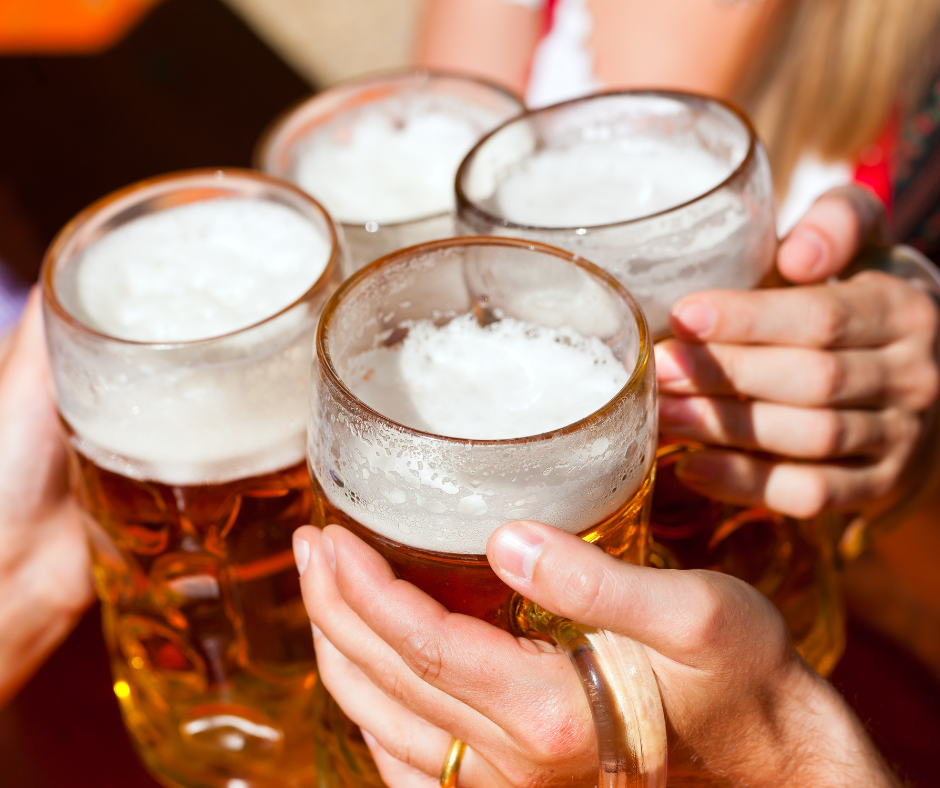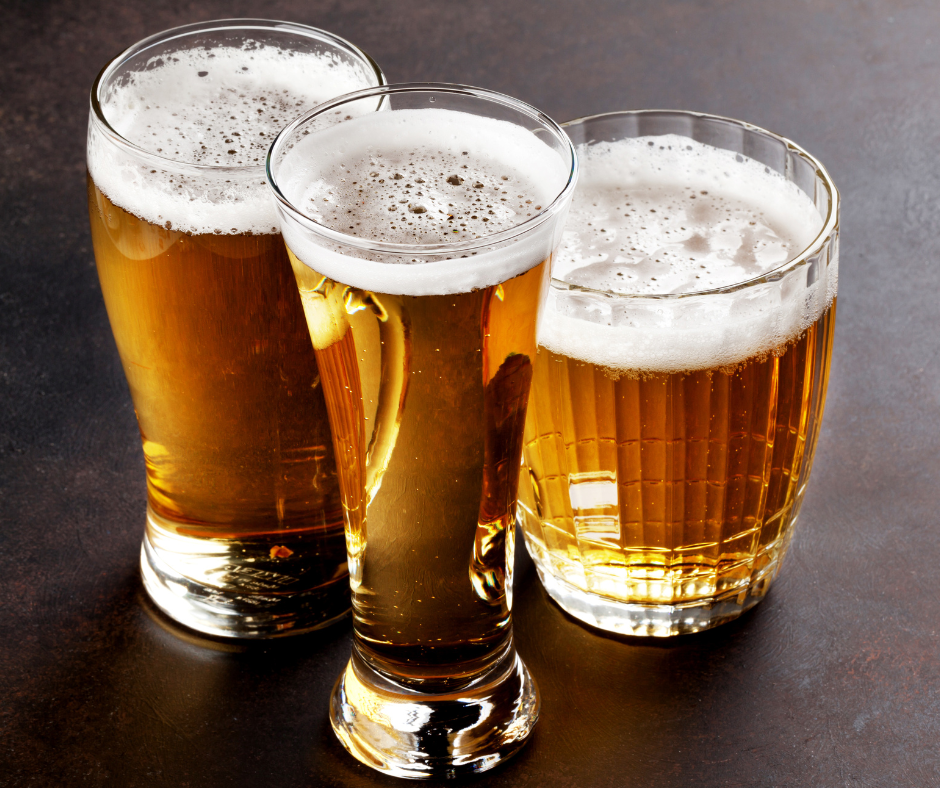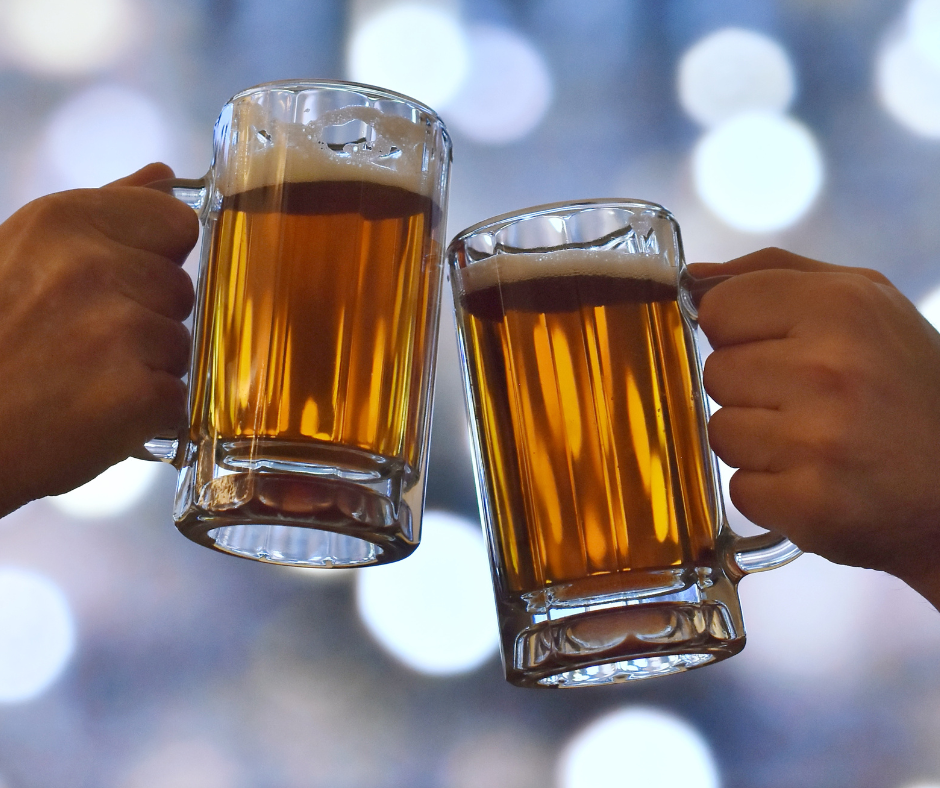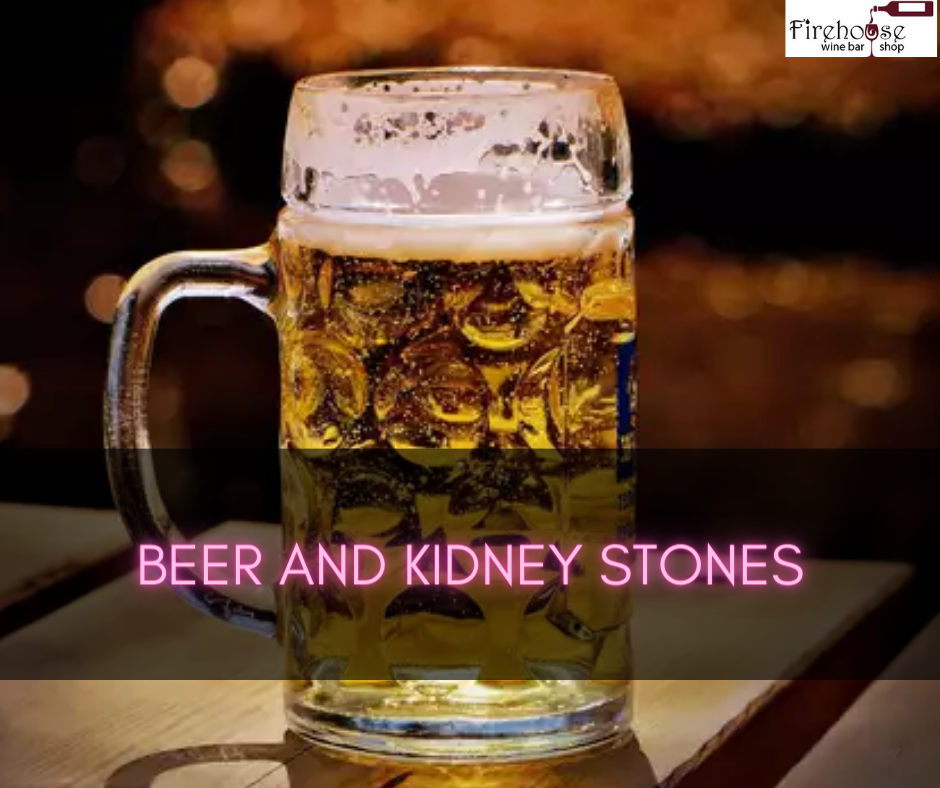Introduction
Understanding Kidney Stones And Their Causes
Kidney stones are small, hard mineral deposits that form in the kidneys. They can be incredibly painful and are often caused by a buildup of certain substances in the urine. Several factors can contribute to the formation of kidney stones, including dehydration, certain medical conditions, and dietary choices. This blog will explore the connection between Beer and Kidney Stones.
The Relationship Between Beer And Kidney Stones
Regarding the relationship between beer and kidney stones, it’s important to understand that moderation is key. While excessive alcohol consumption, including beer, can increase the risk of kidney stones, moderate beer consumption may have a protective effect.
One of the primary risk factors for kidney stones is dehydration. Beer, like other alcoholic beverages, has a diuretic effect, which means that it can increase urine production and potentially contribute to dehydration. However, this risk can be mitigated by drinking beer in moderation and ensuring you stay hydrated with water or other non-alcoholic beverages.
Another factor to consider is the composition of beer. Beer is made from water, hops, yeast, and barley, among other ingredients. It also contains oxalates, naturally occurring compounds in many foods, including beer. Oxalates can contribute to forming calcium oxalate kidney stones, the most common type of kidney stones.
However, studies have shown that the overall effect of beer on kidney stone formation may not be as significant as previously believed. Some research suggests that moderate beer consumption may reduce the risk of kidney stones compared to other alcoholic beverages or even non-alcoholic beverages.
One theory is that certain compounds found in beer, such as hops, may have a protective effect against kidney stone formation. Hops contain a substance called xanthohumol, which has been shown to have antioxidant and anti-inflammatory properties. These properties may help to reduce the risk of kidney stone formation by inhibiting the crystallization of certain substances in the urine.
It’s important to note that individual factors, such as overall health, diet, and genetics, can also play a role in developing kidney stones. Therefore, it is always advisable to consult with a healthcare professional for personalized advice and guidance on alcohol consumption and kidney stone prevention.
In conclusion, while excessive alcohol consumption can increase the risk of kidney stones, moderate beer consumption may not have the same negative impact. Some research suggests that moderate beer consumption may have a protective effect against kidney stone formation. However, it’s always important to drink moderately and stay hydrated to reduce the risk of dehydration and promote overall kidney health.

Kidney Stones: Types And Formation
Different Types Of Kidney Stones
Kidney stones are small, hard mineral deposits that form in the kidneys. Understanding the different types can help shed light on their causes and how they can be prevented. The most common types of kidney stones include:
- Calcium Oxalate Stones: These are the most prevalent type of kidney stones, accounting for approximately 80% of cases. They form when calcium combines with oxalate, a substance in certain foods.
- Uric Acid Stones: These stones develop when the urine has high uric acid levels. Uric acid is a byproduct of the breakdown of purines, compounds in foods such as red meats and seafood.
- Struvite Stones: These stones are usually the result of urinary tract infections. They can grow quickly and become quite large if not treated promptly.
- Cystine Stones: Cystine is an amino acid that can accumulate in the urine, forming crystals and eventually stones. This type of stone is rare and often related to genetic conditions.
Factors Contributing To Kidney Stone Formation
Several factors contribute to the formation of kidney stones. Here are some key factors to consider:
- Dehydration: One of the primary risk factors for kidney stones is dehydration. Insufficient fluid intake leads to concentrated urine, which allows minerals and other substances to crystallize and form stones. Staying hydrated by drinking plenty of water throughout the day is crucial.
- Diet: Certain dietary choices can increase the risk of kidney stone formation. High amounts of oxalate-rich foods, such as spinach, chocolate, and nuts, can contribute to calcium oxalate stones. Similarly, a diet high in purines in organ meats and shellfish can increase uric acid stone formation.
- Medical Conditions: Some medical conditions can raise the risk of kidney stones. These include urinary tract infections, gout, inflammatory bowel disease, and certain genetic disorders that affect the kidneys’ ability to process minerals.
- Medications: Some medications, such as diuretics, antacids containing calcium, and certain antibiotics, can increase the risk of kidney stone formation. It is important to discuss potential side effects with a healthcare professional.
- Family History: A family history of kidney stones can increase an individual’s susceptibility. If one or both parents have had kidney stones, it is essential to take preventive measures by adjusting diet and lifestyle choices.
By understanding the different types of kidney stones and the factors that contribute to their formation, individuals can take proactive steps to prevent their occurrence. This may include staying hydrated, adopting a balanced diet low in oxalate and purine-rich foods, and seeking appropriate medical advice. Remember, maintaining a healthy lifestyle and seeking professional guidance are crucial for kidney stone prevention.
Beer And Kidney Stones: The Facts
The Role Of Alcohol In Kidney Stone Formation
Alcohol consumption has long been associated with various health concerns, including the formation of kidney stones. While not all alcoholic beverages contribute equally to kidney stone formation, it is important to understand the potential risks and factors involved.
Understanding The Connection Between Beer And Kidney Stones
When it comes to beer, studies have shown both positive and negative associations with kidney stones. On the positive side, beer contains a high volume of water, crucial for preventing dehydration – a significant risk factor for kidney stone formation. Additionally, certain compounds found in beer, such as hops, may have diuretic properties that help increase urine production and prevent stone formation.
However, it is important to note that excessive alcohol consumption, including beer, can lead to dehydration, which can contribute to the development of kidney stones. Furthermore, alcohol can increase the excretion of certain substances in urine, such as calcium and uric acid, contributing to stone formation.
Moreover, beer contains purines, naturally occurring compounds in foods and beverages. When purines are broken down in the body, uric acid is produced. Excessive consumption of purine-rich foods and beverages, including beer, can raise uric acid levels, increasing the risk of uric acid stone formation.
It is crucial to maintain moderation and balance when consuming beer or any alcoholic beverage. The key lies in responsible drinking and ensuring adequate hydration by drinking plenty of water alongside beer consumption.
It is worth noting that individuals who have a history of kidney stones or other risk factors should exercise caution when consuming beer or alcohol in general. It is always advisable to consult with a healthcare professional about personal risk factors and how alcohol consumption may impact kidney health.
In conclusion, while Beer and Kidney Stones can have positive and negative associations, moderation and responsible consumption are key. Staying hydrated and maintaining a balanced diet can help reduce kidney stone development risk. As always, seeking professional advice and considering personal health factors when making dietary choices is essential.

Moderation Is Key
Beer is a popular beverage many enjoy, but its association with kidney stone formation has raised concerns. It is important to understand the potential risks and factors involved in making informed decisions about beer consumption. While moderate beer consumption can have some benefits, excessive drinking can lead to dehydration and increase the likelihood of kidney stone development.
Benefits Of Moderate Beer Consumption
Moderate beer consumption can have certain benefits when preventing kidney stones. Beer is composed mostly of water, which is essential for maintaining proper hydration. Dehydration is a significant risk factor for kidney stone formation, so the high water content in beer can help prevent this condition. Additionally, certain compounds found in beer, like hops, may have diuretic properties that increase urine production and aid in flushing out kidney stones.
The Effects Of Excessive Beer Drinking On Kidney Stones
While moderate beer consumption can be beneficial, excessive drinking can lead to negative effects on kidney health. Alcohol, including beer, has a diuretic effect, increasing urine production and potentially contributing to dehydration if not accompanied by adequate water intake. Dehydration can promote the formation of kidney stones by concentrating urine and allowing crystal formation.
Furthermore, excessive alcohol consumption can increase the excretion of substances such as calcium and uric acid in the urine, both of which are risk factors for kidney stone formation. Beer contains purine compounds, which, when broken down, produce uric acid. High uric acid levels in the body can contribute to the development of uric acid stones.
Maintaining moderation and responsible drinking habits is essential to minimize the risks associated with beer consumption. This includes staying hydrated by drinking water alongside beer and avoiding excessive alcohol intake. Individuals with a history of kidney stones or other risk factors should exercise caution and consult with a healthcare professional about the potential impact of alcohol consumption on their kidney health.
In conclusion, moderate beer consumption can have some benefits in terms of preventing kidney stone formation due to its high water content and potential diuretic properties. However, excessive drinking can lead to dehydration and increase the risk of kidney stone development. It is important to balance and practice responsible drinking habits while considering personal health factors and consulting with healthcare professionals when necessary.
Preventing Kidney Stones
Beer is a popular beverage many enjoy, but its association with kidney stone formation has raised concerns. It is important to understand the potential risks and factors involved in making informed decisions about beer consumption. While moderate beer consumption can have some benefits, excessive drinking can lead to dehydration and increase the likelihood of kidney stone development.
Tips For Reducing The Risk Of Kidney Stones
It is important to adopt healthy lifestyle choices to prevent kidney stone formation and maintain good kidney health. Here are some tips to help reduce the risk of kidney stones:
- Stay Hydrated: Drink plenty of water throughout the day to ensure proper hydration. This helps dilute urine and prevents the concentration of minerals that can lead to stone formation.
- Limit Sodium Intake: High sodium diets can increase the amount of calcium in urine, contributing to kidney stones’ formation. Avoid excessive consumption of processed foods and opt for fresh, low-sodium alternatives.
- Follow a Balanced Diet: Eat a diet rich in fruits, vegetables, and whole grains. These foods provide important nutrients and fiber, which can help prevent the formation of kidney stones.
- Avoid Excessive Protein Consumption: Consuming too much protein can lead to higher levels of uric acid in the body, increasing the risk of developing uric acid stones. Be mindful of your protein intake and choose lean sources of protein.
- Limit Oxalate-Rich Foods: Oxalate is a substance found in certain foods that can contribute to forming calcium oxalate stones. Limit consumption of foods high in oxalate, such as spinach, rhubarb, beets, and nuts.
Balancing Beer Consumption With Healthy Lifestyle Choices
While moderate beer consumption can have certain benefits in preventing kidney stone formation, it is important to balance it with other healthy lifestyle choices. Here are some tips to consider:
- Practice Moderation: Limit your beer consumption to moderate levels, typically defined as one drink per day for women and up to two drinks per day for men.
- Stay Hydrated: Drink water alongside beer to stay hydrated and counteract the diuretic effect of alcohol. Avoid excessive alcohol intake, as it can contribute to dehydration.
- Consider Alcohol-Free Days: Take regular breaks from alcohol consumption to give your body time to recover and reduce the overall risk of kidney stone formation.
- Pay Attention to Personal Risk Factors: Individuals with a history of kidney stones or other risk factors should exercise caution and consult with a healthcare professional about the potential impact of alcohol consumption on their kidney health.
In conclusion, while moderate beer consumption can have some benefits in terms of preventing kidney stone formation, it is important to follow a balanced and healthy lifestyle to minimize the risk. By staying hydrated, adopting a balanced diet, and practicing moderation, individuals can enjoy beer responsibly while protecting their kidney health. Consultation with healthcare professionals is advised for those with specific health concerns or risk factors.

Conclusion
The connection between beer and kidney stones is a topic that raises concerns among beer enthusiasts. While moderate beer consumption can have certain benefits, excessive drinking can lead to dehydration and increase the risk of kidney stone formation. It is important to understand the potential risks and take proactive measures to maintain good kidney health. By following a balanced and healthy lifestyle, individuals can enjoy beer responsibly while minimizing the risk of kidney stones.
Summary Of The Link Between Beer And Kidney Stones
Beer consumption has been associated with an increased risk of kidney stone formation primarily due to its diuretic effect. Excessive drinking can lead to dehydration, concentration of minerals in the urine, and the formation of kidney stones. However, moderate beer consumption can have some positive effects, such as promoting diuresis and increasing urine output, which may help prevent certain kidney stones.
Individuals should adopt healthy lifestyle choices to reduce the risk of kidney stone formation. Staying hydrated by drinking plenty of water throughout the day is crucial in diluting urine and preventing mineral concentration. Limiting sodium intake, following a balanced diet rich in fruits, vegetables, and whole grains, and avoiding excessive protein consumption can also contribute to good kidney health. Additionally, individuals should be cautious of consuming foods high in oxalate, as it can contribute to forming calcium oxalate stones.
Final Thoughts On Enjoying Beer Responsibly
While moderate beer consumption can be enjoyed responsibly, it is important to maintain a balanced approach. Practicing moderation by limiting beer consumption to recommended levels and staying hydrated by drinking water alongside beer can help counteract the diuretic effect of alcohol. Taking regular breaks from alcohol consumption and considering personal risk factors, such as a history of kidney stones or other health concerns, are also important considerations for individuals.
Consultation with healthcare professionals is advised for those with specific health concerns or risk factors regarding beer consumption and its impact on kidney health. By following a balanced and healthy lifestyle, individuals can enjoy beer responsibly while minimizing the risk of kidney stone formation and maintaining good kidney health.
FAQ: Beer and Kidney Stones – Brews and Stones: The Connection Between Beer and Kidney Stones
Q: Can beer consumption increase the risk of kidney stone formation?
A: The relationship between beer consumption and kidney stone formation is a topic of debate among researchers. While some believe that alcohol intake, including beer, is negatively associated with kidney stone formation, others argue that it can be a risk factor. The research on this topic has yet to provide a conclusive answer.
Q: Why is research on the connection between beer and kidney stones important?
A: Research on the relationship between alcohol consumption, including beer and kidney stones, is necessary to gain a better understanding of the potential risks and benefits. Researchers can generate new ideas for preventing and treating kidney stones by studying this connection.
Q: How does alcohol consumption affect kidney stone formation?
A: Although the direct association between alcohol consumption, including beer, and kidney stones does not appear to be significant, there may be other diseases associated with kidney stone formation due to alcohol consumption. It is important to consider these factors when studying the impact of alcohol on kidney stones.
Q: Are there any limitations to the studies conducted on beer and kidney stones?
A: Yes, some studies have limitations. For example, in one study, while the Alcohol Use Questionnaire (ALQ) explored alcohol consumption over the last 12 months, the specific times of kidney stone occurrence for participants were not specified. This lack of detailed information can affect the accuracy of the results.
Q: What are the implications of fluid intake, including beer, on kidney stone formation?
A: Previous studies have shown that fluid intake, including alcoholic beverages like beer, can be associated with kidney stone formation. However, it is important to note that this association does not imply a direct cause-effect relationship between beer consumption and kidney stones.
Q: Is there a definitive answer on whether beer causes kidney stones?
A: There is no definitive answer on whether beer consumption directly causes kidney stones. The research on this topic is inconclusive, with differing opinions among researchers. More studies are needed to clarify the potential connection between beer consumption and kidney stone formation.

Andre Lotz immigrated to the United States from South Africa almost 20 years ago. Still, he didn’t feel truly at home until he settled in Mobile—a city that reminds him of his childhood home of Fish Hoek on the southern cape of Africa.

